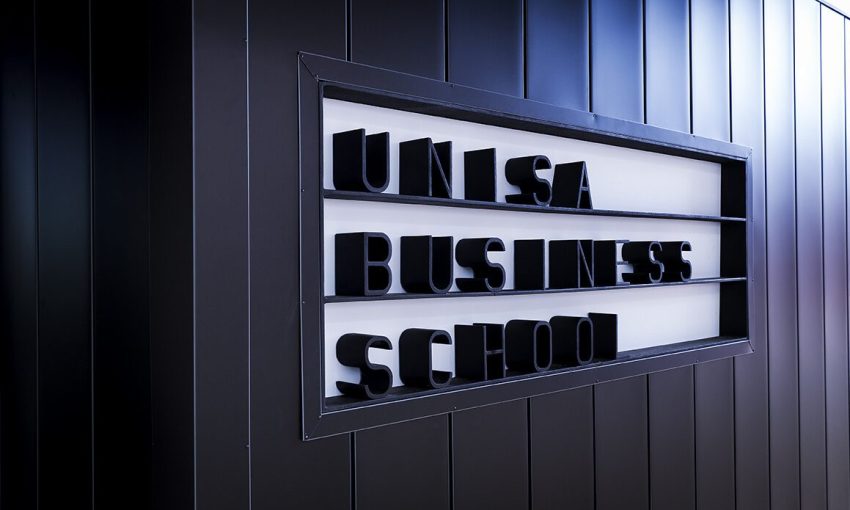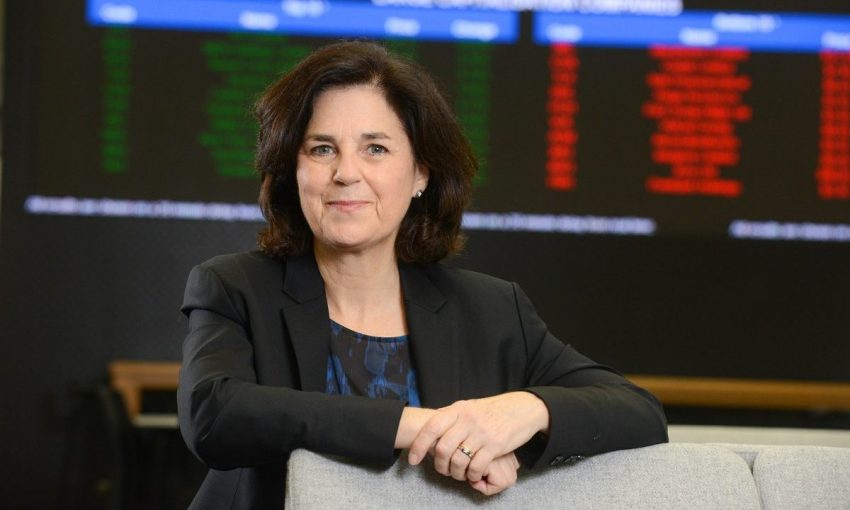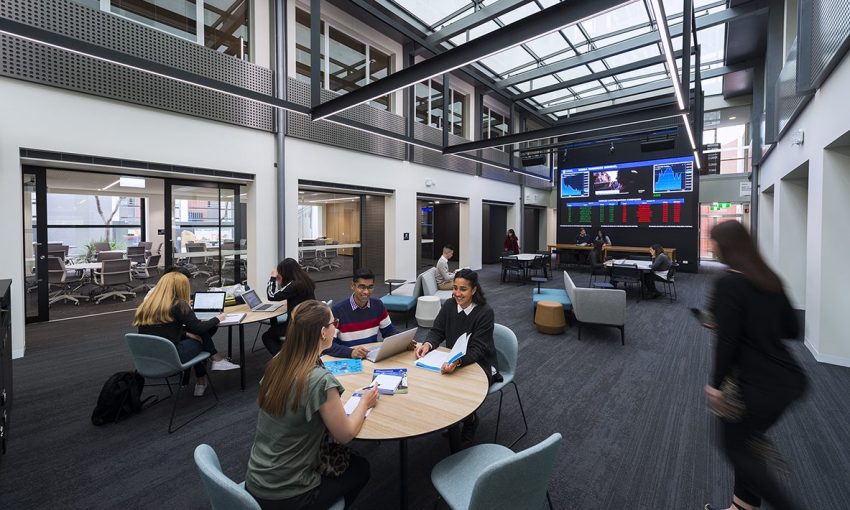The business world has long been a magnet for go-getters and change makers. But to succeed – especially with today’s challenges – having the foundation of a leading business degree is essential.
Uncertain times call for a degree of business nous
Economist Susan Stone calls it living in “complex and dynamic times”.
UniSA’s Credit Union SA Chair in Economics is talking about the upheaval of the past couple of years, when a global pandemic, digital transformation and geopolitical uncertainties have made ‘doing business’ much less straightforward and predictable.
Find out about UniSA’s Business degrees here.
“For Australia in particular, climate is a fundamental challenge. I don’t think that’s fully understood in terms of its potential economic impact,” Susan says, noting the direct-to-consumer flow on effects include an increase in insurance premiums, taxpayer funds being diverted to disaster relief post-floods and fires, and retail electricity charges in response to increasing needs for heating and air conditioning.
The former OECD and United Nations economist says graduates with a business degree from UniSA can play a role in helping companies, communities and countries navigate through uncertain times.
“If you really understand how these processes work, you can play a key role in driving things like growth and innovation – both from the inside, if you’re working at a business or want to own a business, and from the outside when you’re looking at what kind of decisions you make as a member of the community or as a government policy maker… Having a business degree really does give you that insider information.”
UniSA’s Bachelor of Business offers more than 20 specialist degrees and double degrees, including Innovation and Entrepreneurship; Digital Business; Economics, Finance and Trade; Property; Human Resource Management; Marketing; and International Business.
Specialised roles within these areas can help shape budget, policy, business and sustainable models, provide space for innovation and work with new technologies to address current challenges.
Susan says Australia is also facing a more challenging labour market dynamic since the pandemic.
“Post-COVID, we have people who want to change their work habits. We have businesses that are facing a lack of skills or mismatch between what’s available in the labour market and what they’re finding they need,” she says.
“And as long as margins are being squeezed, businesses can’t afford to provide the necessary on-the-job training or lifelong learning that people need.”
She points to years of low real wage growth as complicating the situation, with companies having been focused on returns on capital and boosting profits, rather than boosting wages in line with inflation. “That dynamic is having a big impact on labour markets,” she says.
While today’s dynamic business and economic climates do feel ‘unprecedented’, Susan says the role of economists in response to the modern challenges hasn’t changed.
“I think the way economists engage in these debates maybe has changed but fundamentally, the heart of economics is really about resource allocation to maximise welfare and promote wellbeing,” she says.
“By resources, I mean, how we use what we have – so how we use people, the planet, our productive capacity, technology.”
Susan says, for economists, the change across the decades has been in their focus on “the big question”.
“Thirty or forty years ago there wasn’t the same [widespread] emphasis on planet. However, that’s been changing. For example, around twenty years ago, I was involved in studies where we were trying to measure the environment’s contribution to the economy, with things like clean water.
“Economists have been engaged in these questions and ideas for a long time, it’s just that now the public is also starting to get it.”
As a trade economist, she is bothered by the last decade’s rise in economic nationalism and protectionism, which she says comes from an oversimplification of and misinformation about how markets work.
“If you study business, you have a level of understanding and can contribute to this debate in a well-informed way,” she says.
“You know how businesses play, what drives them and what the actual interactions are, not the politically skewed interactions [driving business behaviours] for the end goal of a policy.
“As a business graduate, you can really get into the thick of all of this understanding and contribute to well-informed decisions and well-informed discussions both within a business and as a policymaker.”
Meanwhile, with the business world rapidly undergoing digital transformation, UniSA’s innovative business curriculum has digitisation built in as a foundational component in subjects, nurturing in students the ability to confidently respond and innovate for the future.
For those who want to dive deeper into the digital future, UniSA’s Bachelor of Digital Business degree will equip graduates with a new hybrid skillset of advanced digital and business principles for a broad and future-proof career.
“I think another important aspect is to look at these things from a research perspective,” Susan says. “Research provides insights into how business plays a role in advancing societal needs. The back-and-forth between universities and the business community is a win-win for both communities.”
Applied research is an integral component of UniSA’s business teaching and learning, with current research looking at leadership, startup dynamics, agility and innovation, SME success and other. The ultimate aim is to help shape more sustainable economic landscapes.
“There’s also a lot of research on how to be better corporate citizens, how to engage in environmental, social and governance issues and to be sustainable by using less resources,” Susan says.
“Students have access to this thinking through their professor, instructor or tutors and they can see firsthand an important part of the process – which is how to critically question assumptions [and] the status quo.”
She believes it’s important to maintain that kind of questioning attitude and apply new thinking and potential solutions throughout one’s career.
“When you come out with a degree, you have all this fresh insight… That term ‘thinking outside the box’ is a bit over used, but it [does help you look] at things from a different, more innovative perspective.”
UniSA is ranked No.1 in South Australia for graduate careers in Business and Management* and No.6 in Business Schools in Australia**.
Apply to study Business here.
*ComparED (QILT) Graduate Outcomes Survey 2020-22 **AFR BOSS Best Business Schools List 2022.






